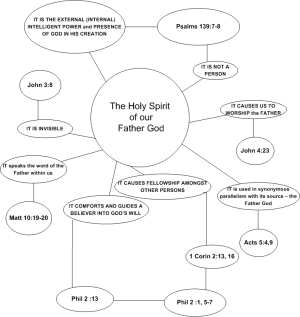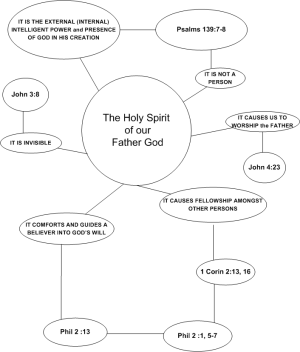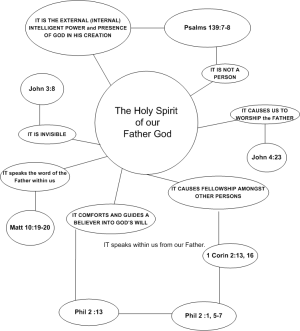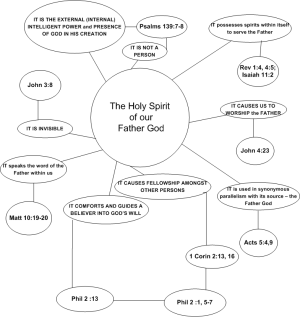Update of a harder concept to grasp: pay attention and see if you can find more examples in scripture..

The use of synonymous parallelism in scripture is a common form used in Hebraic poetry style of writing especially in the OT, and also found in some places of the NT.
Usually found in the same verse or adjoining verses and this time over two verses spread apart although speaking the same thought, of the same person (can be the same things) source.
The Spirit of God and the Father God are synonymously in parallel with each other as used in Act 5:4 and 5:9. Peter spoke of Father God as the one person through his Spirit being lied to.
(Act 5:1) But a certain man named Ananias, with Sapphira his wife, sold a possession,
(Act 5:2) and with his wife's knowledge kept back part of the proceeds, and brought only a part of it and laid it at the apostles' feet.
(Act 5:3) And Peter said: Ananias, why has Satan filled your heart to lie to the Holy Spirit, and to keep back part of the proceeds of the land?
(Act 5:4) While it remained, did it not remain your own? And after it was sold, was it not in your power? How is it you have conceived this thing in your heart? You have not lied to men, but
to God.
(Act 5:5) And Ananias, hearing these words, fell down and breathed his last; and great fear came upon all that heard it.
(Act 5:6) And the young men arose and wrapped him up, and they carried him out and buried him.
(Act 5:7) And it was about the space of three hours after when his wife, not knowing what had happed, came in.
(Act 5:8) And Peter said to her: Tell me whether you sold the land for so much. And she said: Yes, for so much.
(Act 5:9) But Peter said to her: How is it you have agreed together to test the
Spirit of the Lord? Behold, the feet of those that have buried your husband are at the door; and they shall carry you out.
IT ( the Spirit of God) then is used as part of the synonymous parallelism in scripture for the Father God and his Spirit. This time over or in two different verses.





